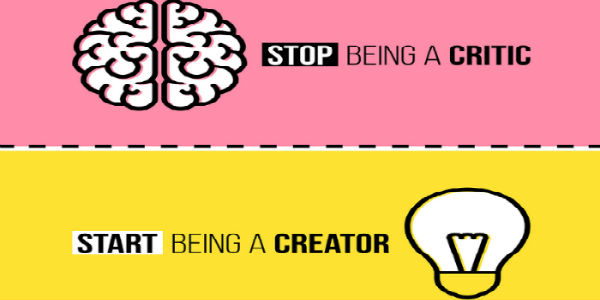It's time to really look at the principles and values of not only the credit union industry but the cooperative movement as a whole, and ask if we are resting on our haunches on top of these platitudes, or are we pushing hard, challenging ourselves, taking risks and doing what we believe is best for our people and communities.
What I have been seeing more of happening in the credit union industry lately is applying a critical lens to our work and taking a true and honest assessment of how well we are or are not doing to truly act on and live our missions and values as cooperative businesses. If this doesn't matter to you, it’s time to question why you are a cooperative. If it does matter to you to be a values-driven organization, then it's time for some deeper soul searching.
The National Council for Excellence in Critical Thinking defines critical thinking as theintellectually disciplined process of actively and skillfully conceptualizing, applying, analyzing, synthesizing, and/or evaluating information gathered from or generated by, observation, experience, reflection, reasoning or communication, as a guide to belief and action.
Step 1: Stop protecting ourselves from criticism:
Recently, a blogger in the cooperative movement expanded on an article where I critiqued the current status of credit unions working with co-ops, saying:
“Protecting ourselves, our projects, our movements, or even sectors of our movements from criticism is, eventually, disempowering. It means we tend not to get into the room together to talk with each other where we can identify what is and isn’t working and what we, together, can do about it.”
So the critical thinking application here is simple. Are you asking yourself what is and isn’t working about your business, your partnerships, your branding or your goals?
Step 2: Identify what change is good:
Are we holding on to the wrong things? Some credit unions have begun dropping “credit union” from their name. And it’s not looking like these credit unions are doing so in an attempt to break from the credit union identity and become more bank-like to seek deeper profits. These kind of rebranding efforts are borne from critical thinking and a desire to be something better than we are today, to truly use our differentiator to our advantage without accepting the burdensome disadvantages that often are infused into that differentiation.
These credit unions are making hard choices and taking risks. They are asking themselves ‘are we being who we say we are, or are we just saying that's who we are and acting surprised when the data shows consumers don't know the difference between banks and credit unions? Is there something else we can do if other methods of differentiating aren’t working?’
It’s an uncomfortable thought at first—that maybe credit unions won’t exist at all like they do today. But maybe we will discover something that will make us much more than what we are today.
Step 3: Push into new territory:
Here’s a great example. Cuba has been an increasingly big topic over the past few months as the U.S. works to repair diplomatic relations with our neighbor nation. And cooperatives, especially credit unions, are interested in getting in on the ground floor to position themselves as a fix for their country’s struggling economy. With the U.S. supposedly removing Cuba from the terrorism watch list, the opportunities absolutely are there, and similar efforts have been successful between credit unions and post-communist Poland.
However, the industry would be fooling itself to believe there will not be significant challenges. The work, the political sensitivities, the regulatory uncertainty and the cultural barriers will certainly make efforts to develop financial cooperatives in Cuba very difficult. Yet if the industry deems this worthy work, I don’t doubt the likelihood for success.
Questions must be asked however. Credit unions will not get by on their good community values and charm alone in Cuba. With the world watching and the potential to turn this into a huge success story for the entire cooperative model, there is pressure to step up and be the best credit unions can be.
I will personally be following the story of credit union development in Cuba and documenting it for the rest of the cooperative industry to see because I think it is important and I want this industry to stay abreast of what’s going on. Watch along with NCBA CLUSA’s next trip to Cuba in August.
All of the critical thinking credit unions need to do to navigate these serious and exciting new frontiers will certainly push us in the industry to try harder and have better reasoning and proof for showing not just THAT we are the best, but WHY we are the best.
I’ll leave you with this. Everyone in the industry knows Ed Filene’s famous words, “Progress is the constant replacing of the best there is with something still better.” But to that sentiment I would like to add the words of the great Martin Luther King, Jr.: “Our lives begin to end the day we become silent about things that matter.”







